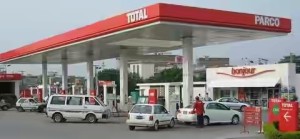THE OBSERVED INCREASE IN THE SPRING UP OF FILLING STATIONS ACROSS NIGERIA – WARRI AND ENVIRONS OF DELTA STATE AS AN EXAMPLE
By Zik Gbemre
It is increasingly disturbing to observe how Nigerian cities and towns are daily getting congested with every nook and cranny filled with petrol filling stations. Even in residential areas, petrol stations are built on little available spaces, in-between residential buildings, raising real fears of environmental hazards and fire outbreaks. Delta State, specifically Warri and environs is a very good example of this ridiculous development where many filling stations cluster residential buildings, markets and corporate business areas. What is even appalling in all of this is the fact that the increasing spring up of petrol filling stations in cities/towns of Delta State and other places across the country, does not translate to availability of petroleum products as the Premium Motor Spirit (PMS) has been very scarce across the nation only until recently, when the situation greatly improved with PMS pump price pegged at N145 per liter. But as the deregulation of the downstream s ector of the petroleum industry comes on full steam, it appears independent marketers, private individuals and even politicians have started building many filling stations across the country to take advantage of the policy. And they are doing so with complete disregard to regulations, city master plans and the natural environment.
 For one, it shows that the regulatory authorities, especially the Department of Petroleum Resources (DPR), may have abandoned their responsibilities in checkmating this ugly trend. For instance, the regulatory guidelines state that a petrol station must not be located within 400metres of another filling station. But it has been observed that in many cities and towns of Nigeria, especially in Warri and environs of Delta State, not only is the guideline flouted, the DPR authorities are looking the other way as filling stations compete for space with residential buildings and other business outlets not minding the risk of explosion, environmental and health implications.
For one, it shows that the regulatory authorities, especially the Department of Petroleum Resources (DPR), may have abandoned their responsibilities in checkmating this ugly trend. For instance, the regulatory guidelines state that a petrol station must not be located within 400metres of another filling station. But it has been observed that in many cities and towns of Nigeria, especially in Warri and environs of Delta State, not only is the guideline flouted, the DPR authorities are looking the other way as filling stations compete for space with residential buildings and other business outlets not minding the risk of explosion, environmental and health implications.
As a matter of fact, one begins to wonder why the DPR keeps approving more filling stations that do not add value to the society but have become ‘legalized fuel hoarding centers’. The filling stations In Warri and environs for example, are more than all the filling stations in New York, USA and London, UK, where they have more vehicles than what we have here. And yet, we cannot readily get PMS to buy. In fact, most of these filling stations that are springing up here and there in cities like Warri and environs have been turned into PMS hoarding/illegal bunkering centers. We all know the scourge brought about by illegal oil and condensate theft in this part of the country on the nation’s economy. Today they have devised a means to legalize their ‘illegal trade’ – and that is one needs to have a filling station. The filling stations today have become PMS hoarding and illegal bunkering facilities that are made to thrive unnoticed to the public in collaboration/collusion with DPR officials and even officials of the PPPMC.
Let us reiterate here that the DPR was established in 1970, and as part of its statutory functions; it processes applications for various Licences, Permits and Approvals across the entire Oil and Gas value chain. This ranges from Oil Exploration Licence (OEL) to Lubricant Retailers Licence. On paper, DPR has stringent guidelines for building of petrol filling stations, paying very serious attention to Safety and Environment. But in reality, and with the way falling stations are located in street corners, near residential houses, near markets and corporate business areas, the guidelines are observed more in breach. For example, it is no longer strange to find concentration of petrol filling stations situated in residential areas and markets in many of the towns and cities across Nigeria. Delta State for instance is a very good example where this ugly phenomenon has been made normal; from the State capital Asaba through other cities like Ughelli, Sapele, Warri, Effurun, Ekpan, and e nvirons. In fact, no city or town is spared by this unhealthy development. The worse part no body seem to be concerned or raising their eyebrow in protest of this growing trend.
It is noted that there are certain requirements that must be met by owners and prospective owners of the petrol stations before the DPR can approve their construction.for instance, a petrol filling station must be sited on a parcel of land which must not be less than 33 x 33 square metres and must not be sited adjacent to a market, hospital, school, church or mosque. It was also discovered that there must be a satisfactory arrangement to curb or prevent fire outbreak and this must be signed by the Chief, State Fire Office of the State concerned before a license can be issued. Unfortunately, all of these procedures are no longer carried out strictly today.
The rate at which these petrol filling stations are springing up daily is proof of this fact, especially in residential areas which has been a major concern to some of the people living in these areas with many of them expressing fears about the likely havoc that can occur from the location of the stations. Ironically, while some people believe it is hazardous to those living around the fuel stations, others believe it brings the products closer to the consumers. But any sane person would realize that, with the instances across the nation of petrol stations going up in flames and killing innocent people because they were built within or very close to residential areas, would realize that it is foolhardy for anyone to encourage such. Many well-meaning Nigerians and health experts have frowned at the practice, with some saying if most people supporting the building of petrol stations in residential areas understand the health implications; they will never support the idea.
According to a health expert, “It is just unfortunate that in this country most of the things we do, there are no regulations governing them, and what we are after is how to survive and what we look at is just the naira value of anything, not really looking at the implications of the decisions we take on health. Even our own health as people who are perpetrating those things, petrol stations are to be built as far away as possible from residential areas because it has a lot of health implications.” The medical doctor said apart from likely fire outbreak, petroleum products contain hydrocarbon and inhalation of the material is dangerous and could trigger repeated episode of asthmatic attacks on asthma patients and some other respiratory illnesses that definitely tell on the health of the people.
Though, we could not lay our hands to available statistics to ascertain the number of approved and illegal filling stations across Delta State in the last couple of years, which means it is either such statistics are not there, or the Government agency concerned is not doing its job to have such important record. But that of other States like Ondo, showed that this ugly development appears to have no end in sight if nothing is done quickly by relevant Government authorities.
It was discovered that the Ondo State Government had one time set up a Committee to look into the establishment of petroleum products selling outlets in the State. The committee headed by a Permanent Secretary, collaborated with the DPR, Fire Service and other relevant bodies and went round major towns of the State to assess the level of compliance by the filling station owners, and discovered that many of them flouted the regulations and specifications. According to the report submitted by the committee, many of the filing stations are located within residential areas against the regulations set for them by the Ministry of Physical Planning and Urban Development.
It was discovered that 311 filling stations were illegally established across the State with another 68 not appropriately located. The panel recommended that about 81 filling stations be close-down, while 136 are to receive minor adjustments. Thirty-four others were recommended to be converted for other uses. But since the submission of the report, no action has been taken against the erring owners of the petrol stations, especially owners of those located within residential areas and those who failed to comply with extant guidelines and requirements of the regulatory bodies. This has made concerned stakeholders to now ask if there will be measures to stop further construction of filling stations in residential areas to save the people from untimely death as a result of chemicals they inhale from the petroleum products and most importantly, to guide against loss of lives and properties from possible fire outbreak?
As it is in Ondo State, so it is also in other States across the federation. With some States like Delta, having it far worse than others, which makes us wonder what the DPR and other relevant authorities are doing in these States to address this problem? Sadly, as we have noticed, the increase in the number of petrol filling stations across Nigeria does not lead to the increase of supply and distribution of petrol to the Nigerian public.
Zik Gbemre, JP.
National Coordinator
Niger Delta Peace Coalition (NDPC)



